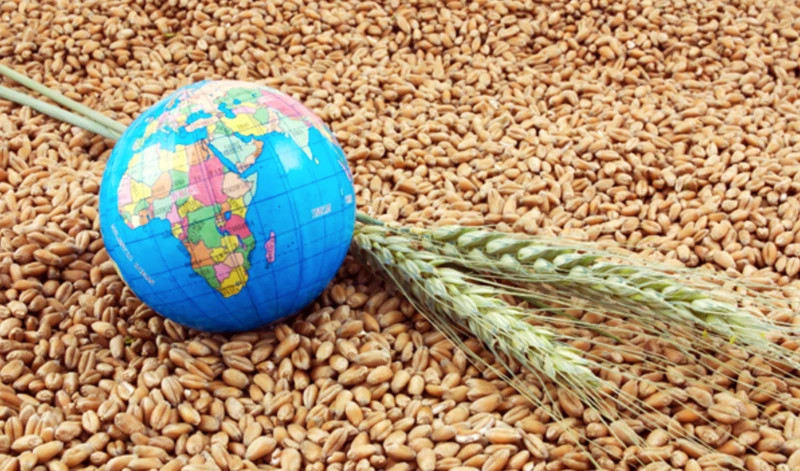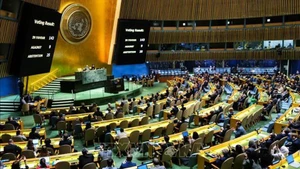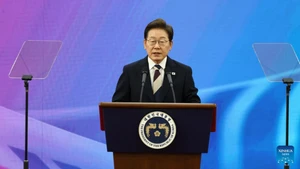Entitled “Food Systems for Our Future: Joining Forces for a Zero Hunger World”, the 16th GFFA Conference is an important event to connect and create a constructive platform to deepen and strengthen political dialogue on agriculture. The conference brought together about 2,000 policymakers, scientists, business leaders and members of civil society who participated in discussion sessions.
Notably, many GFFA events were public, including three high-level panels and 16 expert panels. The political highlight of GFFA was the world’s largest informal meeting of agriculture ministers, which took place on the last day of the forum.
The participation of about 70 ministers of agriculture across the world and high-level representatives of more than ten major international organisations, such as the Food and Agriculture Organization of the United Nations (FAO), the Organization for Cooperation and Economic Development (OECD), the World Trade Organization (WTO) and the World Bank (WB), showed the significance of the forum when it came to the crucial issue of the humanity.
Urgent problem
GFFA 2024 focused on discussing four topics: promoting sustainable agricultural production and food sovereignty, supporting flexible and sustainable supply chains, minimising food loss and waste, and assisting disadvantaged groups. These are practical issues which contribute to making food systems more fit for the future while the international community has only seven years to achieve the United Nations Sustainable Development Goals.
In that context, efforts to achieve the set goals are extremely challenging, as ending hunger and malnutrition globally continues to face new and greater obstacles than ever before, such as climate crises, biodiversity loss, impacts of the COVID-19 pandemic, war and conflict.
Ensuring food security is one of the most important and urgent issues today, as one in 10 people in the world lacks food. More than two billion people in the world cannot afford a healthy diet.
This is a challenge to food security, which is one of the components of human security and a prerequisite for ensuring human rights. The joint communique issued by the agriculture ministers of 61 countries at the end of the forum expressed concern that the world is still in the midst of an unprecedented global food security crisis, and it is difficult to achieve the Sustainable Development Goal of “Zero hunger” by 2030. Without drastic action, nearly 600 million people around the world will still face hunger by 2030.
With one of the main causes of hunger and malnutrition being war and conflict around the world, agricultural leaders emphasised the need for sustainable and adequate access to food for people in conflict areas.
The communique affirmed the need to fully implement the human right to food, which means food must be available, accessible, and affordable for everyone. The implementation of the FAO Voluntary Guidelines on the Right to Food should be strengthened and made more widely available.
Accelerating conversion
To achieve the goal of “Zero hunger” and other sustainability goals of the 2030 Agenda, agriculture ministers are committed to accelerating the transition to sustainable, adaptable and resilient agriculture. In addition, agroecological approaches, organic farming, agroforestry systems and circular economies will help prevent the climate crisis and biodiversity loss. In this respect, the ministers said it is necessary to promote regional cycles and regional supply chains, as well as sustainable consumption.
At GFFA, ministers said that vulnerable groups, who are especially affected by food insecurity, malnutrition and crises, need support. Equal participation, especially for the younger generation and women, is vital. In addition, it is necessary to reduce inequality in the treatment of women in agriculture and strengthen the role of women, including in leadership positions. Women need better access to land and resources.
To strengthen sustainable governance, mechanisms are required to ensure land rights, access to high-quality seeds, and equitable access to finance and rural infrastructure. Ministers agreed to create a systemic approach through cross-sectoral coordination and coherence of political measures. Ministers also aimed to halve global food waste. Accordingly, by 2030, food waste and loss will be significantly reduced throughout the entire value chain.
Food loss and waste must be quantified with the involvement of all parties, from primary producers to households. In addition, it is advisable to increase production and use of sustainable fertilisers to stabilise productivity and avoid global supply shortages. Fertiliser management must be part of integrated and sustainable land management. Countries in the southern hemisphere need support in sustainable fertiliser production.
The deteriorating food security situation and lack of progress in implementing global nutrition goals have forced countries to work harder to achieve a world free of hunger and malnutrition by 2030. However, achieving the goals requires great effort and increased solidarity among countries. In the context of many crises at the same time, ensuring food security is a major challenge, requiring countries to speed up the transition to a more sustainable and equitable food system.
















